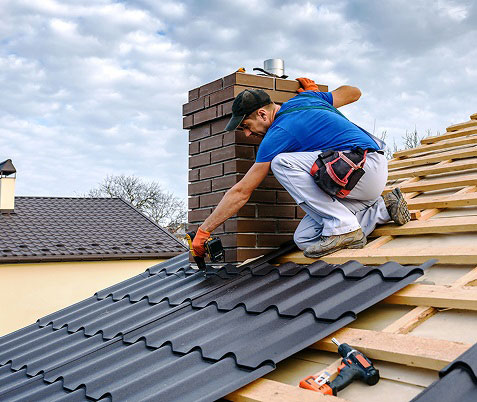To become a home inspector, you’ll typically need to complete a training program and earn a state license. This career path can be rewarding for those who are willing to spend their days examining buildings, identifying potential issues, and helping people make informed decisions about one of the biggest investments of their lives.
As a home inspector, you’ll have the opportunity to work flexible hours and potentially run your own business. You’ll need to develop a keen eye for detail, stay up to date with building codes and regulations, and possess excellent communication skills to explain your findings to clients. If you’re interested in construction, real estate, and helping others – a career as a home inspector might be the perfect fit for you.
Becoming a Home Inspector
Becoming a home inspector requires specific education, licensing, and skills. The path usually involves completing required training, obtaining proper certifications, and developing essential abilities to succeed in the field.
Education and Training Requirements
To start your career as a home inspector, you’ll need to complete specialized training. Many states require a minimum number of education hours, typically ranging from 60 to 120. You can fulfill these requirements through online courses, classroom instruction, or a combination of both.
Training programs cover various aspects of home inspection, including:
- Building Systems and Components
- Inspection Techniques
- Report Writing
- Building Codes and Standards
Some programs also offer hands-on experience through field training. This practical component allows you to apply your knowledge in real-world scenarios.
Certification and Licensing
After completing your education, you’ll need to obtain the necessary certifications and licenses. Requirements vary by state, so it’s crucial to research your state’s specific regulations.
Most states require you to:
- Pass the National Home Inspector Examination (NHIE)
- Complete a certain number of supervised inspections
- Obtain liability insurance
Some states may have additional requirements, such as background checks or apprenticeships. Joining professional organizations like the American Society of Home Inspectors (ASHI) can provide valuable resources and networking opportunities.
Skills Necessary for Success
To thrive as a home inspector, you’ll need a combination of technical knowledge and soft skills. Key abilities include:
- Attention to Detail
- Physical Stamina
- Strong Communication Skills
- Problem-Solving Abilities
- Time Management
You should be comfortable working with various tools and technologies, such as moisture meters and thermal imaging cameras. Developing your business acumen is also crucial, as many home inspectors are self-employed.
Continuous learning is essential in this field. Building codes and inspection standards evolve, so you’ll need to stay updated through ongoing education and professional development.
Career Path and Progression
Home inspectors have various options for advancing their careers and increasing their earning potential. You can choose between self-employment and working for established companies, with opportunities to specialize and develop your expertise.
Starting Your Own Business
Starting a home inspection business allows you to be your own boss and set your own schedule. You’ll need to obtain the necessary licenses and certifications for your state. You’ll also develop a business plan outlining your services, pricing, and marketing strategy, as well as investing in quality inspection tools and software to provide thorough reports.
You can network with real estate agents, mortgage lenders, and other professionals to build referral sources. And you should consider joining professional organizations like the American Society of Home Inspectors (ASHI) for credibility and resources.
As your business grows, you may hire additional inspectors or administrative staff to expand your service area and client base.
Employment Opportunities
Many home inspectors begin their careers working for established inspection companies. This provides valuable experience and a steady income while you learn the ropes. Large inspection firms often offer benefits like health insurance and retirement plans. You’ll typically receive on-the-job training and mentorship from experienced inspectors.
Some inspectors work for government agencies, conducting inspections for building code compliance or public housing. Others find employment with real estate companies or property management firms. As you gain experience, you may have opportunities to take on leadership roles or specialize in certain types of inspections.
Advancement and Specializations
To advance your career, consider pursuing additional certifications in specialized areas. These might include:
- Radon Testing
- Mold Inspection
- Energy Audits
- Pool and Spa Inspections
- Commercial Property Inspections
Developing expertise in niche areas can increase your value to clients and command higher fees. You might also explore teaching opportunities, conducting training seminars for new inspectors or real estate professionals.
Some experienced inspectors become expert witnesses in legal cases involving property disputes. Others transition into related fields such as construction management or real estate appraisal. Staying current with industry trends and technology is crucial for career growth. You can attend conferences, take continuing education courses, and network with peers to expand your knowledge and opportunities.
Find Your Online Home Inspector Program
| Quick Facts: Construction and Building Inspectors | |
|---|---|
| 2023 Median Pay ?The wage at which half of the workers in the occupation earned more than that amount and half earned less. Median wage data are from the BLS Occupational Employment and Wage Statistics survey. In May 2023, the median annual wage for all workers was $48,060. | $67,700 per year $32.55 per hour |
| Typical Entry-Level Education ?Typical level of education that most workers need to enter this occupation. | High school diploma or equivalent |
| Work Experience in a Related Occupation ?Work experience that is commonly considered necessary by employers, or is a commonly accepted substitute for more formal types of training or education. | 5 years or more |
| On-the-job Training ?Additional training needed (postemployment) to attain competency in the skills needed in this occupation. | Moderate-term on-the-job training |
| Number of Jobs, 2023 ?The employment, or size, of this occupation in 2023, which is the base year of the 2023-33 employment projections. | 142,600 |
| Job Outlook, 2023-33 ?The projected percent change in employment from 2023 to 2033. The average growth rate for all occupations is 4 percent. | 0% (Little or no change) |
| Employment Change, 2023-33 ?The projected numeric change in employment from 2023 to 2033. | 0 |
Day-to-Day Responsibilities
Home inspectors have diverse daily tasks that require attention to detail, technical knowledge, and strong communication skills. Your role involves thorough property examinations, detailed report writing, and clear client interactions.
Conducting Inspections
As a home inspector, you’ll spend a significant portion of your day examining properties. You’ll arrive at the inspection site with your toolkit, which should include items like a ladder, flashlight, and moisture meter. Your inspection will cover various areas:
- Exterior: foundation, roof, siding, drainage
- Interior: walls, floors, ceilings, windows, doors
- Systems: electrical, plumbing, HVAC
During the inspection, you’ll document issues and potential problems. This may involve taking photographs, measurements, and detailed notes. You’ll need to be thorough and methodical, ensuring no critical areas are overlooked.
Your work will often require physical activity such as climbing ladders, crawling in tight spaces, and standing for extended periods. Safety is paramount, so you’ll need to follow proper protocols and use protective equipment when necessary.
Report Writing
After completing the inspection, you’ll dedicate time to writing comprehensive reports. These documents are crucial for communicating your findings to clients. Your reports will:
- Detail observed issues and potential concerns
- Include photographs and diagrams for clarity
- Provide recommendations for repairs or further evaluation
Report writing requires attention to detail and clear communication. You’ll need to describe complex issues in terms that clients can understand. Many inspectors use specialized software to streamline this process and ensure consistency.
Accuracy is vital in your reports, as clients and real estate professionals rely on this information for decision-making. You’ll need to review and edit your reports carefully before submission.
Client Interaction and Communication
Effective communication is a key aspect of your role as a home inspector. You’ll interact with clients throughout the inspection process:
- Before: scheduling appointments and explaining the inspection scope
- During: answering questions and pointing out significant findings
- After: reviewing the report and addressing any follow-up inquiries
Customer service skills will be crucial for building a positive reputation and securing repeat business. You’ll need to be patient, professional, and able to explain technical concepts in layman’s terms.
You may also communicate with real estate agents, contractors, and other professionals involved in the property transaction. Building good relationships with these individuals can lead to referrals and future business opportunities.



